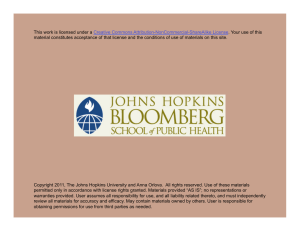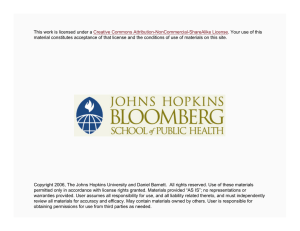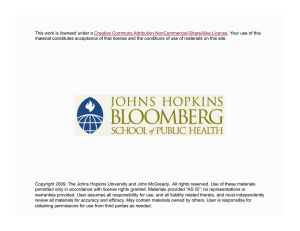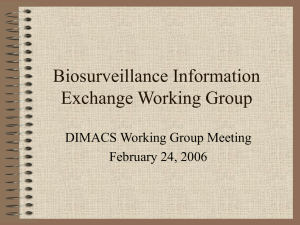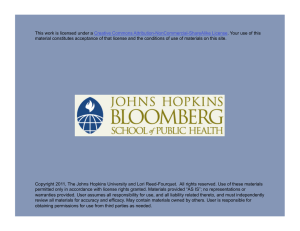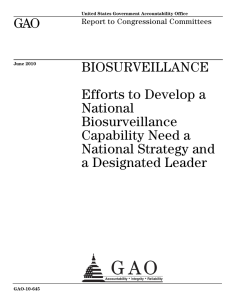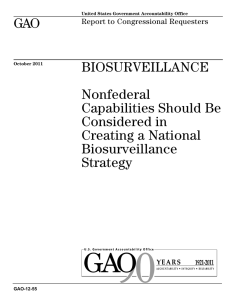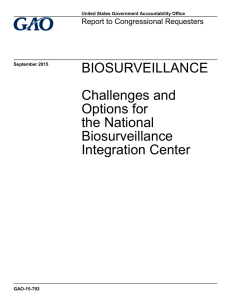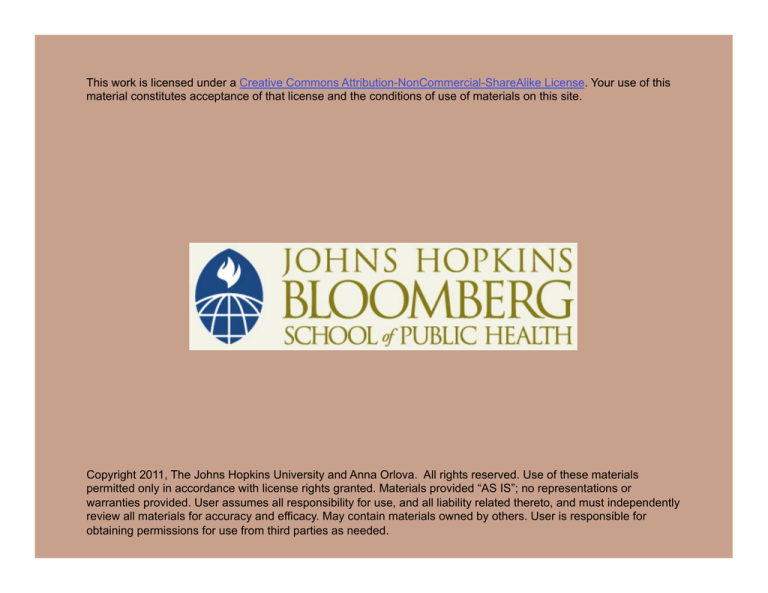
This work is licensed under a Creative Commons Attribution-NonCommercial-ShareAlike License. Your use of this
material constitutes acceptance of that license and the conditions of use of materials on this site.
Copyright 2011, The Johns Hopkins University and Anna Orlova. All rights reserved. Use of these materials
permitted only in accordance with license rights granted. Materials provided “AS IS”; no representations or
warranties provided. User assumes all responsibility for use, and all liability related thereto, and must independently
review all materials for accuracy and efficacy. May contain materials owned by others. User is responsible for
obtaining permissions for use from third parties as needed.
Functional Standards
Anna O. Orlova, PhD
Johns Hopkins Bloomberg School of Public Health
Session Outline
Functional standards
System development process: how to communicate your needs to
developers
Documenting functional requirements
Final assignment
3
Section A
Functional Standards
Health IT Standards Categories
Data standards
- E.g., vocabularies and
terminologies
Information content standards
- E.g., Reference
Information Models (RIMs)
Information exchange
standards
- E.g., messaging standards
Identifiers standards
- E.g. National Provider
Identifier (NPI)
Privacy and security standards
Functional standards and
business processes standards
- E.g., processes/workflow
Other
- E.g., IT standards
Source: Health Information Technology Standards Panel (HITSP). (2006). www.hitsp.org
5
Health IT Standards Categories
To date, the main focus of the standard development activities has
been on:
- Data standards (vocabularies and terminologies)
- Information content standards (data representation, RIMs)
- Messaging
- Infrastructure standards
6
National Biosurveillance Use Case
Charge: “transmit essential data from electronically enabled
healthcare to authorized public health agencies in real-time”
7
National Biosurveillance Use Case
Data Standards — 28
Privacy and Security Standards
—5
Information Content Standards
— 17
Functional Standards — 0
Other — 0
TOTAL = 107 standards
Information Exchange
Standards — 46
Identifiers Standards — 11
Source: Health Information Technology Standards Panel (HITSP). (2006). www.hitsp.org
8
Communicating your Needs to Developers
Functional standard:
communicating your needs to developers
9
How the client
explained it
How the project
officer understood it
How the analyst
designed it
How the programmer
wrote it
How the sales rep
described it
How the project
was documented
What operations
installed
How the customer
was billed
How the project
was supported
What the client
really needed
10
Source: http://www.projectcartoon.com/. Creative Commons BY.
Functional Standard
Functional standard describes work processes that support data
exchange between users (e.g., clinicians and public health
practitioners) in a format of functional requirements specification
for electronic communication between settings (e.g., clinical and
public health settings)
11
Functional Standard
Functional standard is a vehicle to assure that the work processes
of stakeholders (e.g., clinicians and public health practitioners)
related to the electronic data exchange are well understood and
agreed upon by stakeholders themselves and then communicated
clearly to the developers as functional requirements (functional
standard) for the information system
12
Functional Standard
The functional standard serves as a foundation for the
implementation of all other standards
To date in the United States, there is no consensus on the format,
content, and approach for how to specify the functional
requirements (functional standards)
13
Used with permission. All Rights Reserved.
14

